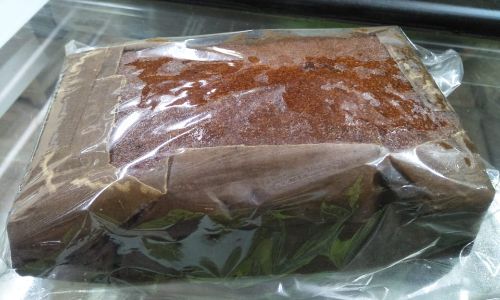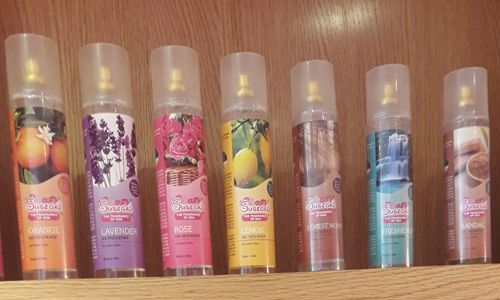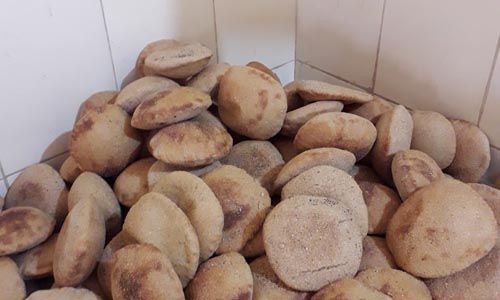Adinco's attempt to join the elite big boys clubs began with a collaboration to make cream liqueur with Flovor Chimca, Italy, a leading producer of food flavourings and cream liqueurs which provides them the crucial emulsifier specially designed to stabilise cream liqueurs. Adinco (estd. 2000) have come a long way since Solomon's father Alleluia started off in the liquor and beer distribution business launched much earlier.
August 10, 2013
The adrenalin rush of at Adinco
Lionel Messias
If you were told a Goa made vodka with the not-the-so-heady name of Flo will soon be sold in Canada and the US, you might feel a tad heady. Blame it, if you want, on the huge in-your-face ad spend or the intoxicating effect of all those promos on the north coast line, but sober up fast. What you do not know is that vodka is produced through an intricate and expensive process and is not merely distilled from an assortment of grain mashes (or potatoes even) which the Russians did for a long, long time before they knew better. So, know this. The Cotombi-based Adinco run by the Diniz brothers Truman (production), Solomon (marketing) and Wilfrid spelt with an ‘i’ (logistics) use the later discovered Russian filter method to make Flo which hopefully is going to be ‘shot’ in bars soon into the North American continent. “The Russian filters are so compact they can be installed in a room,” says Solomon. Adinco uses both the carbon (cost: approx. Rs 2,00,000 ) and silver (cost: approx Rs 5,00,000) processing methods or filters.
Sipped straight and very cold
A good way to start enjoying, the next time that is, your vodka, is to first know what the heck a Russian filter is. In carbon processing a virtually ready-for-use vodka is produced from two mixed components alcohol and water. For the need-to-know-more vodka aficionado, there are two main opinions on carbon processing: it is believed that genuine vodka is the one filtered through birch coal; of all existing methods of carbon processing of the water-alcohol mixture, the most effective method is filtration through a carbon column (dynamic method). This method is considered to be classic. There are a total of three processes; one filtered through charcoal, one through charcoal and then silver, and one through charcoal and then gold and platinum. The cost of vodka naturally increases with each added-on process added for reasons obvious.
Cracker of a job
Adinco's attempt to join the elite big boys clubs began with a collaboration to make cream liqueur with Flovor Chimca, Italy, a leading producer of food flavourings and cream liqueurs which provides them the crucial emulsifier specially designed to stabilise cream liqueurs. "We make Voodoo cream liqueur and have exclusive manufacturing and marketing rights for India and any other global market we can crack on our steam," Solomon says. 'Cracking' Canada itself - the paper work, sampling - took the brothers four years. Their first container was shipped to Canada in June 2013. In that were samples of Cabo - a coconut liqueur with white rum, Old Oak whiskey - blended with Scotch whiskey, FLO vodka, Ti Connie - a coffee liqueur and caju feni which they do not produce on their own but source from outside.
Earlier in December 2012, Adinco shipped samples of FLO vodka to the US after getting approval from the Food and Drug Administration there and in May 2013 FLO was officially launched by Mantra America, a New York-based importer specializing in alcohol brands from India. Adinco also produces wine in bulk quantities made from the Bangalore Blue Grape which is then delivered in tankers to Premier Distilleries in Pondicherry which bottles and sells it under its own brand. In wine production we prefer the bulk route because we eliminate a bunch of costly intermediate tasks like distribution and branding. However, we do sell small quantities of wine in Goa but we are not concentrating on it.
But Adinco (estd. 2000) have come a long way since Solomon's father Alleluia started off in the liquor and beer distribution business launched much earlier. "Our production target for 2013-14 is 1,00,000 cases (I case=9 bottles). Our next goal is to launch single malt by 2014 which we will import in bulk from Scotland and bottle it in our plant," he says.
As for the liquor industry in general, Solomon says, it has come of age especially in the packaging and quality areas. "The company's own quality control is based on the total use of extra neutral alcohol (ENA) from grain for all our products, both upper and lower ends. We do not use rectified spirit (RS) made from sugarcane molasses at all and our experience has shown that the best ENA comes from Punjab, closely followed by Hyderabad from where we source it. Hyderabad is also cost effective for us,"he says.
Adinco's motivation for concentrating primarily on the tourist market is probably peculiar to Goa only. It has greater selling power because Goa is tourism-dependent. So retailers have the scope and opportunity of selling Goa made brands.
(To be continued)



